Expect the Unexpected: A Journey into the Unknown
Last updated: September 11, 2024 Read in fullscreen view
- 13 Oct 2021
 Outsourcing Software Development: MVP, Proof of Concept (POC) and Prototyping. Which is better? 40/486
Outsourcing Software Development: MVP, Proof of Concept (POC) and Prototyping. Which is better? 40/486 - 18 Oct 2020
 How to use the "Knowns" and "Unknowns" technique to manage assumptions 38/1089
How to use the "Knowns" and "Unknowns" technique to manage assumptions 38/1089 - 12 Oct 2022
 14 Common Reasons Software Projects Fail (And How To Avoid Them) 31/567
14 Common Reasons Software Projects Fail (And How To Avoid Them) 31/567 - 19 Oct 2021
 Software development life cycles 29/701
Software development life cycles 29/701 - 01 Oct 2020
 Fail fast, learn faster with Agile methodology 24/1047
Fail fast, learn faster with Agile methodology 24/1047 - 14 Oct 2021
 Advantages and Disadvantages of Time and Material Contract (T&M) 22/864
Advantages and Disadvantages of Time and Material Contract (T&M) 22/864 - 05 Aug 2024
 Debunking 10 Myths About Change Management 21/281
Debunking 10 Myths About Change Management 21/281 - 13 Dec 2020
 Move fast, fail fast, fail-safe 20/323
Move fast, fail fast, fail-safe 20/323 - 18 Aug 2022
 What are the consequences of poor requirements with software development projects? 20/274
What are the consequences of poor requirements with software development projects? 20/274 - 06 Feb 2021
 Why fail fast and learn fast? 19/450
Why fail fast and learn fast? 19/450 - 04 Oct 2021
 Product Validation: The Key to Developing the Best Product Possible 17/320
Product Validation: The Key to Developing the Best Product Possible 17/320 - 23 Sep 2021
 INFOGRAPHIC: Top 9 Software Outsourcing Mistakes 17/439
INFOGRAPHIC: Top 9 Software Outsourcing Mistakes 17/439 - 01 Mar 2023
 Bug Prioritization - What are the 5 levels of priority? 17/235
Bug Prioritization - What are the 5 levels of priority? 17/235 - 05 Sep 2023
 The Cold Start Problem: How to Start and Scale Network Effects 17/203
The Cold Start Problem: How to Start and Scale Network Effects 17/203 - 07 Oct 2025
 Case Study: Using the “Messaging House” Framework to Build a Digital Transformation Roadmap 17/86
Case Study: Using the “Messaging House” Framework to Build a Digital Transformation Roadmap 17/86 - 31 Aug 2022
 What are the best practices for software contract negotiations? 16/260
What are the best practices for software contract negotiations? 16/260 - 10 Nov 2022
 Poor Code Indicators and How to Improve Your Code? 16/231
Poor Code Indicators and How to Improve Your Code? 16/231 - 05 Mar 2021
 How do you minimize risks when you outsource software development? 16/336
How do you minimize risks when you outsource software development? 16/336 - 19 Oct 2021
 Is gold plating good or bad in project management? 15/816
Is gold plating good or bad in project management? 15/816 - 08 May 2024
 Time Unlocked: Mastering the Pomodoro Technique Against Parkinson's Law 15/235
Time Unlocked: Mastering the Pomodoro Technique Against Parkinson's Law 15/235 - 12 May 2024
 The Pros and Cons of the Creator Economy in the Age of AI: Opportunities, Challenges, and the Gray Zone with the Gig Economy 14/270
The Pros and Cons of the Creator Economy in the Age of AI: Opportunities, Challenges, and the Gray Zone with the Gig Economy 14/270 - 02 Oct 2022
 [Medium] The Importance of Being Able to Pivot 14/253
[Medium] The Importance of Being Able to Pivot 14/253 - 19 Apr 2021
 7 Most Common Time-Wasters For Software Development 14/556
7 Most Common Time-Wasters For Software Development 14/556 - 28 Jul 2022
 POC, Prototypes, Pilots and MVP: What Are the Differences? 13/697
POC, Prototypes, Pilots and MVP: What Are the Differences? 13/697 - 28 Oct 2022
 Build Operate Transfer (B.O.T) Model in Software Outsourcing 12/405
Build Operate Transfer (B.O.T) Model in Software Outsourcing 12/405 - 08 Oct 2022
 KPI - The New Leadership 12/602
KPI - The New Leadership 12/602 - 31 Oct 2021
 Tips to Fail Fast With Outsourcing 12/392
Tips to Fail Fast With Outsourcing 12/392 - 04 Oct 2022
 Which ERP implementation strategy is right for your business? 11/313
Which ERP implementation strategy is right for your business? 11/313 - 10 Dec 2023
 Pain points of User Acceptance Testing (UAT) 11/452
Pain points of User Acceptance Testing (UAT) 11/452 - 03 Oct 2021
 Five long-lasting trends in Chinese Marketing 11/378
Five long-lasting trends in Chinese Marketing 11/378 - 12 Dec 2021
 Zero Sum Games Agile vs. Waterfall Project Management Methods 10/409
Zero Sum Games Agile vs. Waterfall Project Management Methods 10/409 - 17 Feb 2022
 Prioritizing Software Requirements with Kano Analysis 10/304
Prioritizing Software Requirements with Kano Analysis 10/304 - 28 Dec 2021
 8 types of pricing models in software development outsourcing 10/437
8 types of pricing models in software development outsourcing 10/437 - 18 Jul 2021
 How To Ramp Up An Offshore Software Development Team Quickly 9/593
How To Ramp Up An Offshore Software Development Team Quickly 9/593 - 05 Jan 2024
 Easy ASANA tips & tricks for you and your team 9/200
Easy ASANA tips & tricks for you and your team 9/200 - 11 Jan 2024
 What are the Benefits and Limitations of Augmented Intelligence? 9/477
What are the Benefits and Limitations of Augmented Intelligence? 9/477 - 12 Mar 2024
 How do you create FOMO in software prospects? 9/167
How do you create FOMO in software prospects? 9/167 - 05 Sep 2024
 The Inverted Approach: A Guide to Identifying Software Risks with Reverse Brainstorming 9/255
The Inverted Approach: A Guide to Identifying Software Risks with Reverse Brainstorming 9/255 - 06 Mar 2024
 [SemRush] What Are LSI Keywords & Why They Don‘t Matter 7/176
[SemRush] What Are LSI Keywords & Why They Don‘t Matter 7/176 - 12 Aug 2024
 Understanding Google Analytics in Mumbai: A Beginner's Guide 6/99
Understanding Google Analytics in Mumbai: A Beginner's Guide 6/99 - 26 Dec 2023
 Improving Meeting Effectiveness Through the Six Thinking Hats 6/254
Improving Meeting Effectiveness Through the Six Thinking Hats 6/254 - 14 Mar 2024
 Why should you opt for software localization from a professional agency? 6/140
Why should you opt for software localization from a professional agency? 6/140 - 06 Nov 2019
 How to Access Software Project Size? 6/249
How to Access Software Project Size? 6/249 - 01 Dec 2023
 Laws of Project Management 5/302
Laws of Project Management 5/302 - 01 Aug 2024
 Red vs. Blue Oceans in Software Development 5/200
Red vs. Blue Oceans in Software Development 5/200 - 23 May 2024
 Mastering AI: Sharpening the Axe in the Digital Age 5/245
Mastering AI: Sharpening the Axe in the Digital Age 5/245 - 15 Aug 2025
 Quantum Technology: Global Challenges and Opportunities for Innovators 4/100
Quantum Technology: Global Challenges and Opportunities for Innovators 4/100 - 01 May 2024
 Warren Buffett’s Golden Rule for Digital Transformation: Avoiding Tech Overload 3/205
Warren Buffett’s Golden Rule for Digital Transformation: Avoiding Tech Overload 3/205 - 19 Apr 2024
 What is Skills-Based Approach & Why Does it Matter? 3/134
What is Skills-Based Approach & Why Does it Matter? 3/134
Expect the Unexpected: A Closer Look at Murphy’s Law
According to Murphy's Law, "Anything that can go wrong will go wrong." This law highlights the possible risks and challenges that can occur when we rely on technology.
One of the most common ways Murphy's Law applies to technology is through unexpected failures. Whether it's a software bug, requirement defect, a hardware malfunction, or a network outage, technology can fail at any time, often at the most inconvenient moment. This may result in lower productivity, missed deadlines, and unhappy users.
Unintended consequences are another way that technology is affected by Murphy's Law. Unintended impacts of technology could include unanticipated side effects or detrimental effects on society. Social media, for instance, has completely changed the way we communicate with one another, but it has also been connected to problems like addiction, cyberbullying, misrepresentation and the dissemination of false information.
Murphy's Law also applies to the challenges of keeping up with constantly evolving technology. It can be challenging for individuals and businesses to stay up to date with the latest advancements in technology, as it is developing at an unparalleled rate. This may result in lost competitive advantage, overlooked opportunities, and a higher risk of obsolescence.
"If there are two or more ways to do something and one of those results in a catastrophe, then someone will do it that way".
Despite these challenges, it's important to remember that technology can also bring tremendous benefits. Technology may have a huge positive impact on our lives in many different ways, from better communication and connectivity to more productivity and efficiency.
- 01 - Murphy's First Law: Anything that can go wrong will go wrong.
- 02 - Murphy's Second Law: Nothing is as easy as it looks.
- 03 - Murphy's Third Law: Everything takes longer than you think it will.
- 04 - Murphy's Fourth Law: If there is a possibility of several things going wrong, the one that will cause the most damage will be the one to go wrong.
Corollary: If there is a worse time for something to go wrong, it will happen then.
- 05 - Murphy's Fifth Law: If anything simply cannot go wrong, it will anyway.
- 06 - Murphy's Sixth Law: If you perceive that there are four possible ways in which a procedure can go wrong, and circumvent these, then a fifth way, unprepared for, will promptly develop.
- 07 - Murphy's Seventh Law: Left to themselves, things tend to go from bad to worse.
- 08 - Murphy's Eighth Law: If everything seems to be going well, you have obviously overlooked something.
- 09 - Murphy's Ninth Law: Nature always sides with the hidden flaw.
- 10 - Murphy's Tenth Law: Mother nature is a bitch.
- 11 - Murphy's Eleventh Law: It is impossible to make anything foolproof because fools are so ingenious.
- 12 - Murphy's Twelfth Law: Whenever you set out to do something, something else must be done first.
- 13 - Murphy's Thirteenth Law: Every solution breeds new problems.
- 14 - Murphy's Fourteenth Law: If anything can't go wrong on its own, someone will make it go wrong.
The Unexpected will always happen
“The Bridge to Nowhere” - story of Choluteca!
The Choluteca Bridge, located in Honduras, is also known as the Bridge of Rising Sun. The bridge was built by Hazama Ando Corporation between 1996 and 1998 and became the largest bridge constructed by a Japanese company in Latin America.
The Choluteca Bridge in Honduras was severely damaged by Hurricane Mitch, causing significant damage to the nation's infrastructure. The roads under the bridge disappeared and the Choluteca River cut a new channel. After being repaired in 2003, the bridge earned the moniker "The Bridge to No Where".
Even with meticulous planning and preparation, the unexpected always comes as a huge blow. Although the Choluteca Bridge served its intended function, nature took its course. Though certain situations may be beyond our control, it's important to always be ready for the unexpected.
We focus in creating best sophisticated solution for current problem statement. Considering the current status, we prepare all of our expertise and abilities. We think and anticipate that the current design strength will be sufficient to solve catastrophic future situations as well. However, we often overlook the possibility that the demand or problem description might change over time. We put all of our effort into creating the best bridge possible, but we neglect the chance that the river beneath it might change its course.
The Choluteca Bridge in Honduras has often been used as a metaphor for life, because no matter how hard we try to perfect things in life, we also have to ensure that we are adaptable to life's changing currents.
Great Leaders, CEO, CIO, CTO, Experts and Successful People - know that they might not be able to control everything - but that they must take the lead in all types of unexpected, in all types of Volatilities, Uncertainties, Complexities, and Ambiguities (VUCA) – and through the realm of unknown.
When everything is sailing smoothly - we can delegate more, build more while we focus on creating strategy and vision - but when it is VUCA time – we need to be facing the fire at the front.
Expect the Unexpected, believe in the Unbelievable, achieve the Unachievable
Take a look at paradoxical thinking of Heraclitus: “If you don’t expect the unexpected, you will not find it out, as it cannot be reached by search or trail.”
Heraclitus, an ancient Greek philosopher known for his doctrine of change and the unity of opposites, often expressed ideas that were enigmatic and open to interpretation.
Whoever cannot seek the unforeseen sees nothing for the known way is an impasse": Heraclitus emphasizes the importance of being open-minded and adaptable. This suggests that those who are unable or unwilling to look beyond the familiar or the expected will not be able to perceive anything meaningful or new. In other words, if someone is confined to the known and refuses to explore the unknown, their understanding will be limited. "For the known way is an impasse": Heraclitus also implies that sticking solely to what is already known or established leads to a dead end or a stalemate. It suggests that relying solely on familiar paths or conventional wisdom can hinder progress and understanding.
Heraclitus advocates for embracing uncertainty and being open to new experiences, ideas, and perspectives. He suggests that true insight and understanding come from being willing to venture into the unknown rather than remaining confined to what is already familiar.
Always Expect the Unexpected: Cultivating a Resilient Mindset
The key takeaway from this article is to maintain a mindset that anticipates surprises, which can help individuals and organizations adapt more swiftly to unforeseen events. The covid-19 pandemic has proven that those who embraced this mindset were better equipped to navigate challenges. To effectively handle the unexpected, one should develop a flexible mindset, enhance problem-solving skills, plan for risks, stay informed, build a support network, practice flexibility, remain financially prepared, and utilize technology.
- By adopting these strategies, individuals can transform challenges into opportunities for growth.
- By being prepared for the worst-case scenario, we can avoid potential problems and ensure that we have contingency plans in place
In conclusion, Murphy's Law applied to technology serves as a helpful reminder that mishaps might occur and that we should always be ready to handle unforeseen difficulties. We can maximize the benefits and minimize the threats of technology by being proactive, staying up-to-date and embracing change.






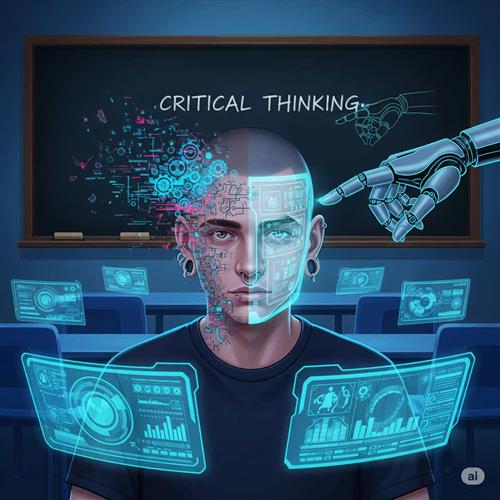
![Best IT Outsourcing Companies in Vietnam with Reviews 2023 Top 10 Vietnam IT Outsourcing Vendors [MOST UPDATED] - TIGO CONSULTING](/Uploads/Vietnam12012023111455_thumb.jpg)

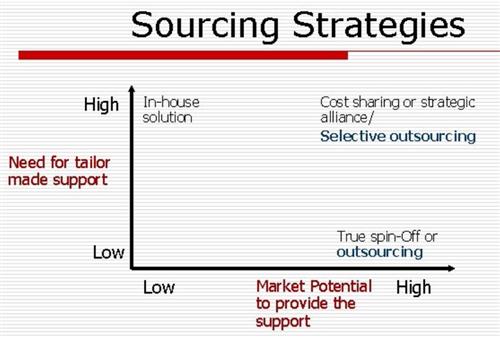

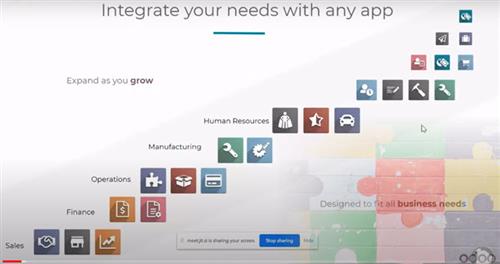



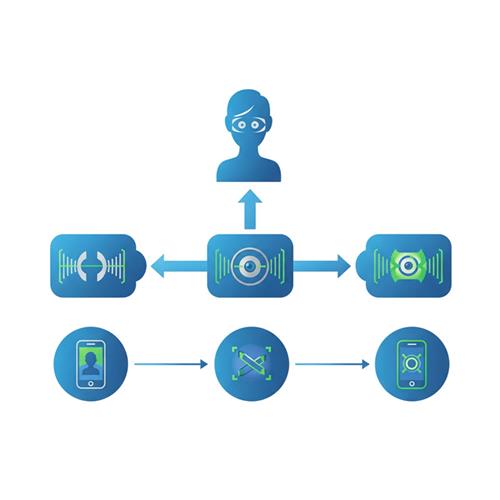
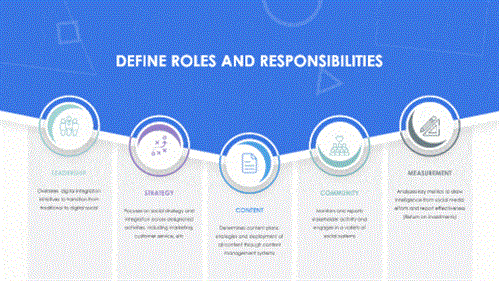
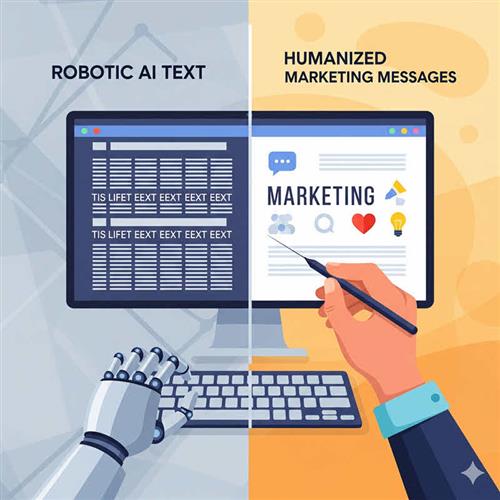



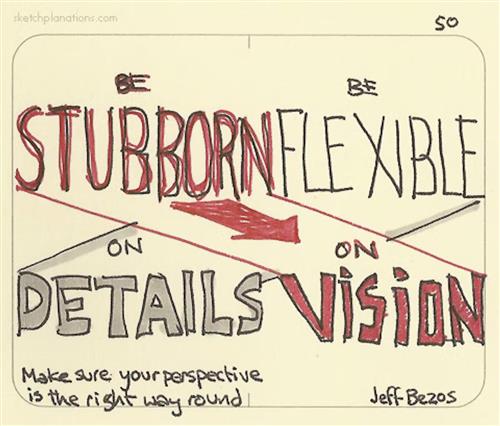

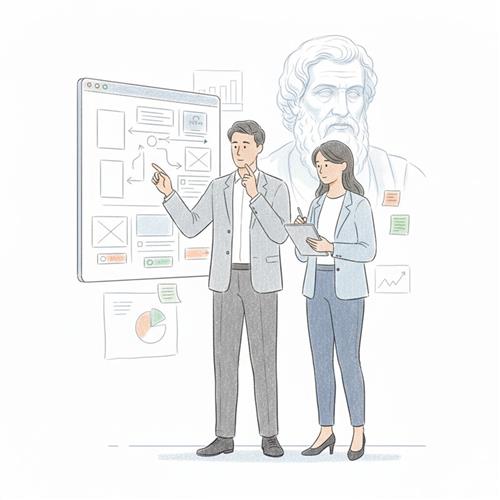
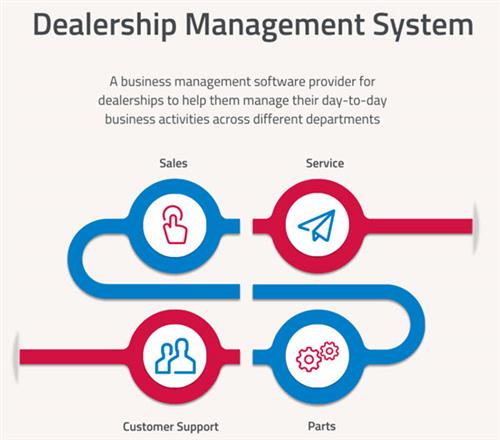









 Link copied!
Link copied!
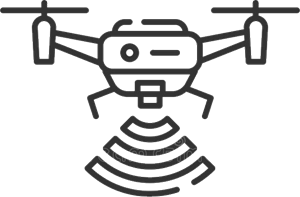 Recently Updated News
Recently Updated News